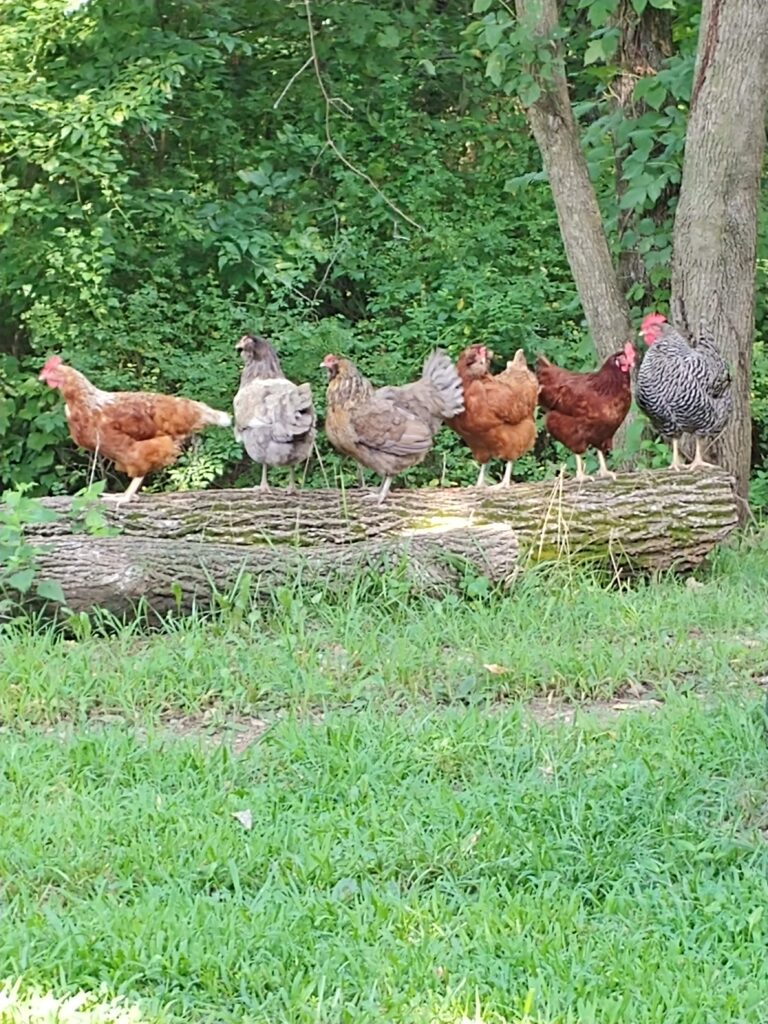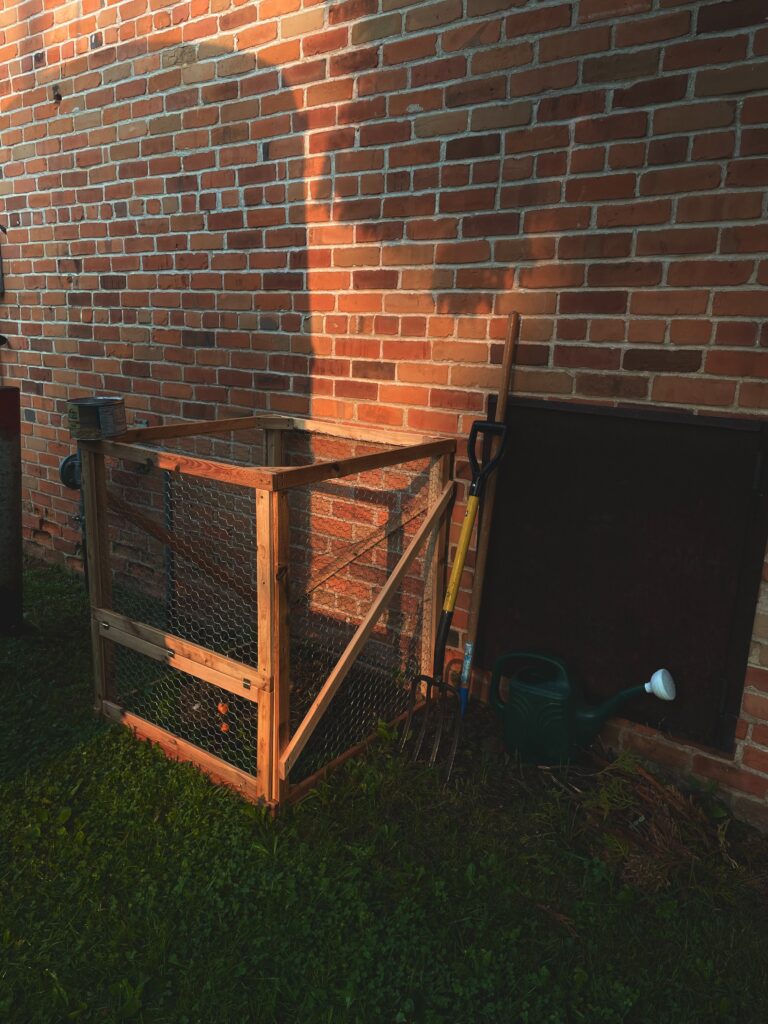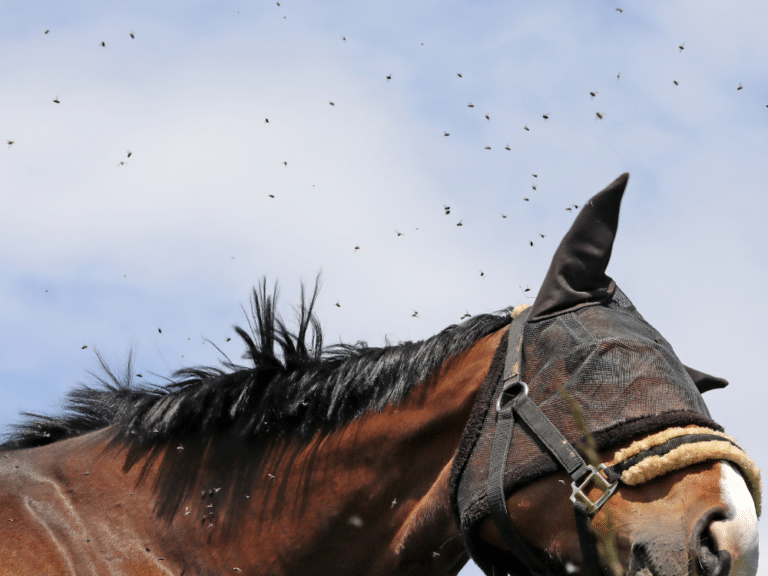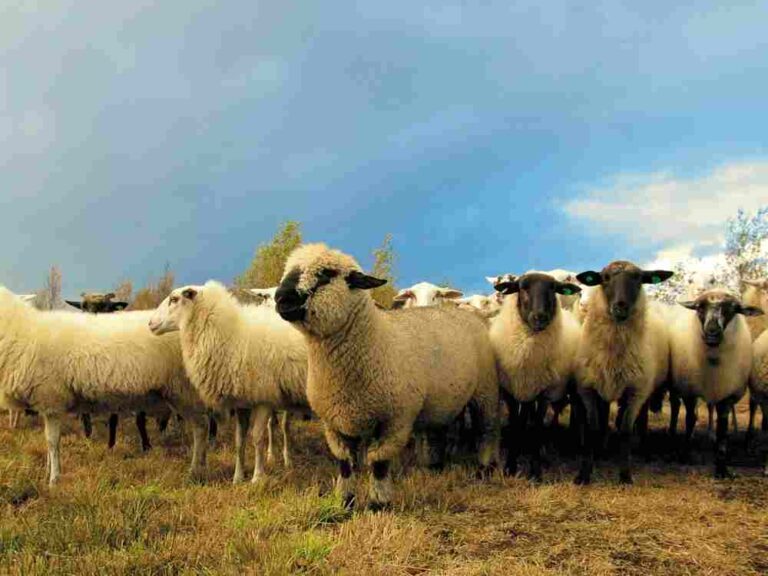5 Tips for Caring for Chickens in the Winter
This post may contain affiliate links. Read the full disclosure here.
If you live in a climate that gets cold, you may be wondering about how you’re going to keep your birds warm during the winter months. The good news is that it’s not as hard as you might think. Chickens are pretty hardy, and with adequate preparation, they’ll thrive even in cold weather. Here are 5 tips for caring for chickens in the winter to help you get ready!

Can you keep backyard chickens in the winter?
You sure can. Even if you live in a colder climate, keeping your chickens healthy and happy in the winter will only require a few adjustments from your summer setup. Preparations such as protecting from drafts, properly ventilating the coop, and keeping water from freezing are all important considerations.
Even though chickens are small, they’re actually quite hardy creatures. Chickens have their own, built-in feather coats that allow them to be surprisingly well-suited to cold. In fact, extreme heat can actually be more dangerous for chickens than cold.
5 tips for caring for chickens in the winter
It’s time to prepare your chickens for winter. Here are our top tips for getting your coop ready.
1. Patch any holes in your coop
Although it’s good for chickens to have time outside, it’s also necessary for them to have a place where they can be warm and dry. Your chickens’ indoor area needs to be free of leaks and holes. When chickens get wet, they can freeze.
Take a good look at your coop and patch any holes where water can fall directly on your chickens or where drafts will blow through. It IS important for them to have proper ventilation, but you don’t want them getting wet while they’re inside. Now is also a great time to make sure that your coop’s roof is waterproofed. In particular, make sure that your nesting boxes are kept dry for your birds.
2. Make sure your coop has proper ventilation
While you don’t want drafts blowing on your chickens or moisture dripping through, you also don’t want the coop sealed so tightly that there’s no airflow. A lack of airflow actually promotes moisture buildup in the coop.
The best way to add ventilation is high up in your chicken coop. This way, the chickens aren’t exposed to the drafts coming straight at them. In addition, this also allows the warmest and most moist air to travel up and out of the vents. Remember that a bunch of warm air trapped in the coop means moisture.
3. Add plenty of bedding
Keeping plenty of clean, dry pine shavings in the coop, and specifically in the nesting boxes, is an important way to help your chickens stay warm. Just remember that it’s essential to replace the bedding often. Otherwise, your chickens will be sitting in wet bedding, and the moisture could lead to them getting too cold or even freezing.
4. Beware of heat sources
It may be tempting to want to spoil your chickens with their very own heater, but this actually isn’t usually the healthiest option for your birds.
Not only does using a heater introduce a fire risk, but it can actually interfere with the chickens’ natural ability to adjust to the cold themselves.
If it’s really frigid, you may need to use a heater to thaw things out. However, don’t heat your coop above freezing.
5. Keep the water from freezing
It’s very important for chickens to have constant access to clean water, even in the winter. There are a few different ways to handle keeping water from freezing.
One method is to water your chickens in a black, rubber tub that’s kept outside in the sun. Using sunlight not only prevents water from freezing as fast, but will also encourage your chickens to spend more time outside in the daylight. In addition, extra time in the sunlight can also increase egg production – bonus!
Another tactic is simply to check on them every few hours (or longer, depending on how cold it is) to break up the ice and add some hot water if needed. Some chicken owners like to have two waterers. This way, you can keep one inside where it’s warm and then switch them each time you go out to check on your birds.
Lastly, you can purchase a water heater. Keep in mind, though, that electric water heaters can be a safety hazard. In an area filled with active animals, it’s important to make this decision carefully.
A couple of highly rated options for chicken waterers include this integrative design or a heated base.
Best cold-hardy chicken breeds
Some chickens do better in the cold than others. If you’re looking to start your flock and you live in a cold climate, here are some of the best breeds to consider.
- Ameraucana
- Brahma
- Delaware
- New Hampshire Red
- Orpington
- Plymouth Rock
- Rhode Island Red
- Wyandotte
Are you ready for winter?
We hope these tips for caring for chickens in the winter are helpful!
Check out our Fall Homestead To-Do List for more winter preparation ideas.
See our Airstream Remodel Reveal here!







